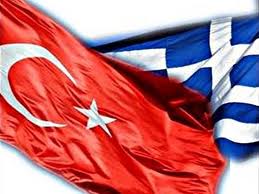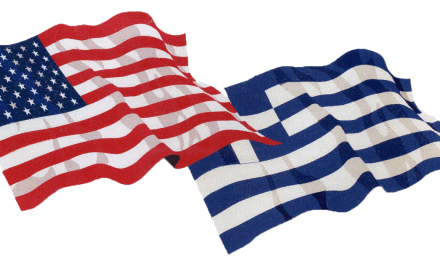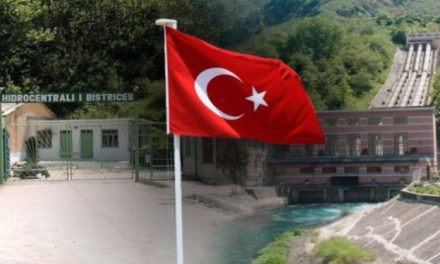Today Zaman
Participants in a panel discussion held in Istanbul about the future of Turkish-Greek relations following the left-wing Syriza party’s election victory in Greece agreed that by taking the state of affairs in both countries into consideration, not only will their respective situations improve, bilateral relations between Greece and Turkey will also play a bigger role in the future of the European Union.
The panel, titled “Is the current Greek-Turkish Rapprochement Leading Both Countries Closer to Europe?” was held early on Wednesday at İstanbul’s Kadir Has University by the Friedrich Naumann Foundation (FNF) and the Center for International and European Studies (CIES). The FNF’s Turkey representative, Dr. Hans-Georg Fleck, delivered the opening speech of the panel, saying that even though Greece has always been one of the most important members of the European Union, it is no longer certain what kind of policy regarding the EU the new government will pursue. “Greece is geographically closer to Europe than Turkey. But time will show us whether it will remain part of the European Union in the coming years,” Fleck said.
Turkish diplomat and retired Ambassador Volkan Vural said during his speech that Cyprus must continue to remain on the top of the two countries’ agenda due to its importance. “Cyprus was the initial reason that drove the two countries into a crisis decades ago. And this problem has still not been solved. To be realistic, without resolving this issue, it would be meaningless to expect any process between the countries,” he said.
Vural also talked about territorial problems and the militarization of islands in the Aegean Sea. “In general, we have frozen all attempts at a solution. I do not see either government as willing to take concrete steps. Unless the general election in Turkey [that is scheduled to take place on June 7] creates a new atmosphere to review Turkish foreign policy, I am afraid that Turkey will continue to limit its policies to the Middle East rather than attempting to solve the Cyprus issue and problems in the Aegean Sea. In that sense, I have great doubts regarding future relations between the two countries,” Vural said.
The Aegean dispute is one of the most rooted and controversial problems between Greece and Turkey over sovereignty in the Aegean Sea. Since the beginning of the mid-1960s, disagreements over islands, territorial waters and national airspace have inflicted a heavy blow on Greek-Turkish relations. The two countries came to the brink of war in 1987 and in early 1996. Vural also said that the June 7 election will not just determine Greek-Turkish relations but “will also determine Turkey’s future, whether it will return to being a democratic country or continue to be ruled by authoritarian means.”
Dimitrios Triantaphyllou, an associate professor of international relations at Kadir Has University, spoke about a survey that he jointly carried out with a colleague in November 2014 regarding the Greek elite’s perceptions of Turkey. “One of the questions we asked the Greek elite concerning Turkey was whether it should join the European Union or not. The results may be surprising for some of you. For instance, 28.9 percent of military officers ‘somewhat disagree’ with the prospect of Turkey joining the European Union, while a staggering 55.6 percent ‘totally disagree.’ However, of the other group that we asked, mostly composed of academics, most people say that they ‘totally agree’ or ‘probably agree,’ 20.8 percent and 34 percent, respectively, with a European future for Turkey,” Triantaphyllou said.
Triantaphyllou also said that when asked whether they see the European Union as a strategic partner of Turkey, across all groups, overall only 5.5 percent of those questioned “totally agree,” while the most popular response was “somewhat agree,” gathering a total of 41.1 percent.
However, Professor Mustafa Aydın, the dean of Kadir Has University, criticized Triantaphyllou’s survey, saying that the elite in Greece are always wrong when it comes to Greek-Turkish relations because they does not reflect the country’s general approach.
“The elite are part of the problem. If this survey had been carried out among the general public, the results would have been different. The real problem is nationalism. Greeks and Turks define themselves against each other. But there are no projects to build trust between the two nations. Turks are not trying to reach out to Greeks to build trust and Greeks are not doing this, either. This problem will not be solved by academic studies. We need more than that,” Aydın stated.
The Friedrich Naumann Foundation, established in Germany in 1958, works to support the protection of human rights, an open-market economy, democracy and the rule of law all around the world.



















